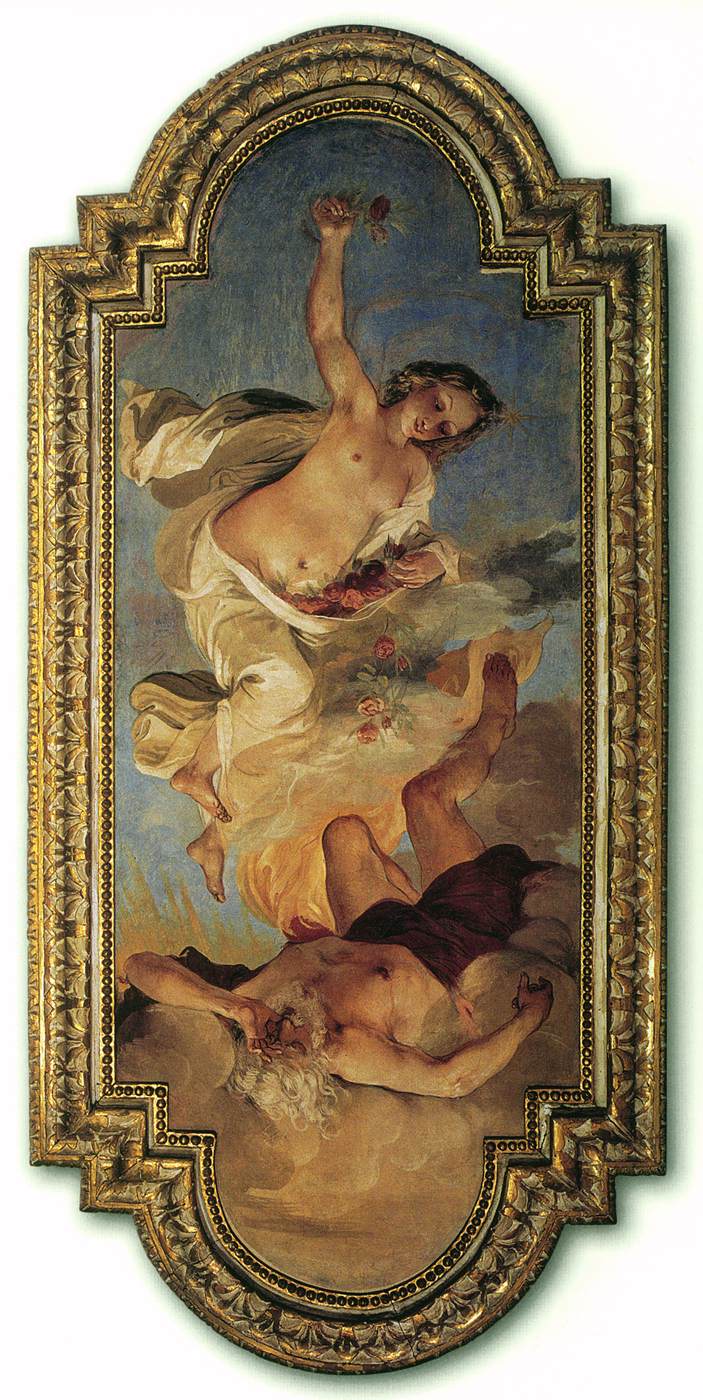Description
The painting Aurora and Tithonus by the Italian artist Giovanni Da San Giovanni is a masterpiece of Baroque art from the 17th century. With an original size of 360 x 160 cm, this painting is one of the artist's largest and most detailed.
The composition of the work is impressive, with a central figure of the goddess Aurora, the personification of dawn, who soars into the sky with her chariot while carrying her mortal lover Tithonus. The scene is full of movement and energy, with the horses and characters in a cosmic dance that spans the entire canvas.
Color is another prominent aspect of the painting, with shades of gold and pink illuminating the scene and creating a magical, heavenly atmosphere. Giovanni Da San Giovanni's technique is impressive, with painstaking detail in every figure and object, from the feathers on the horses to the clouds in the sky.
The story behind the painting is also interesting. The legend of Aurora and Tithonus dates back to Greek mythology, and tells the story of the goddess who falls in love with the mortal Tithonus and asks Zeus to grant her immortality. However, he forgets to ask for eternal youth, and Tithonus grows old and lonely and lifeless.
A little known aspect of the painting is that it was commissioned by Cardinal Leopoldo de' Medici for his residence in Florence. The work was part of a series of paintings depicting the four seasons, with Aurora and Tithonus believed to represent spring.
In short, Giovanni Da San Giovanni's painting Aurora and Tithonus is a masterpiece of Italian Baroque art, with stunning composition, vibrant coloring, and detailed technique. The story behind the painting and its connection to Greek mythology and the Medici court make it even more fascinating and worthy of admiration.

